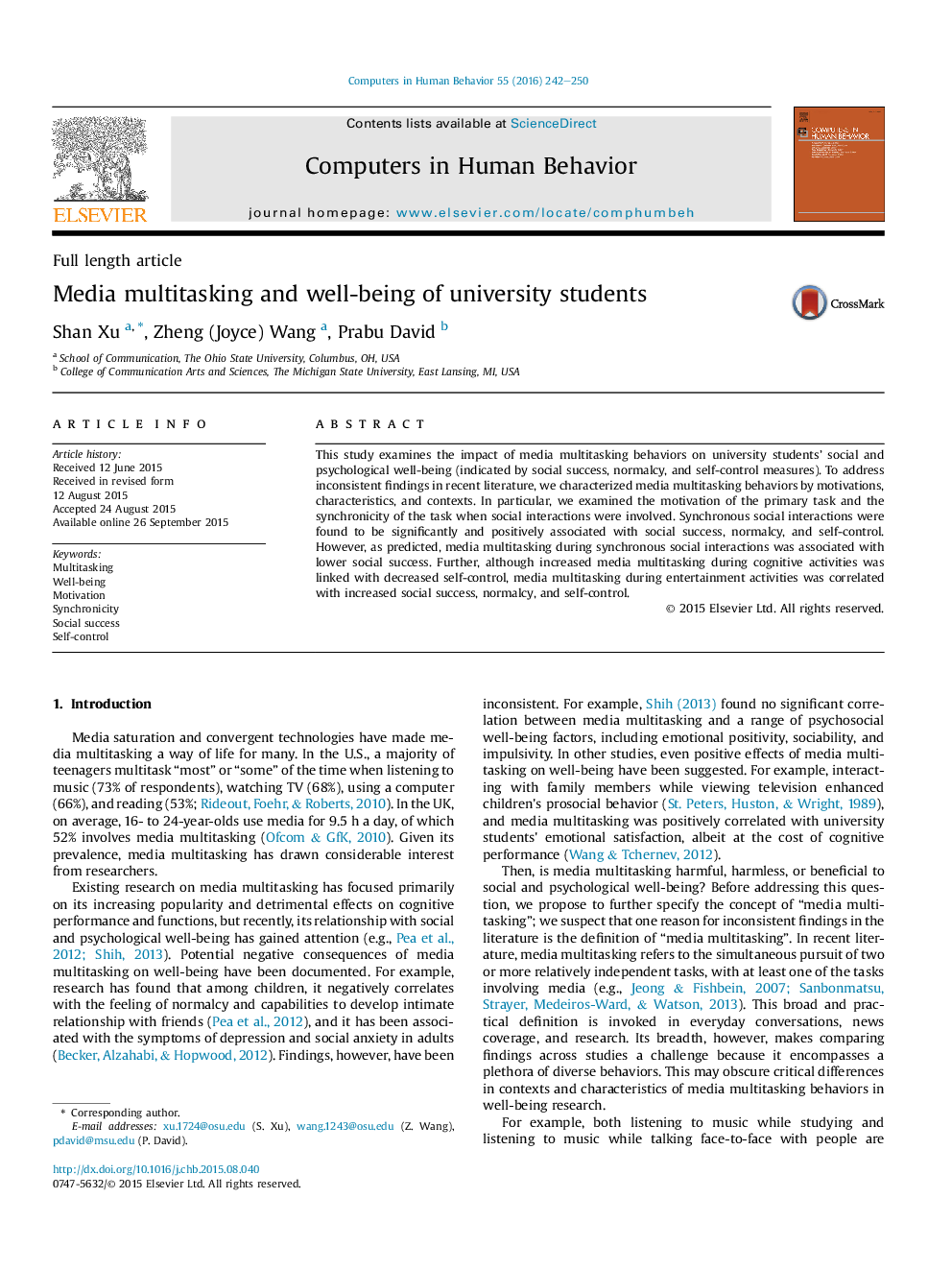| کد مقاله | کد نشریه | سال انتشار | مقاله انگلیسی | نسخه تمام متن |
|---|---|---|---|---|
| 350170 | 618432 | 2016 | 9 صفحه PDF | دانلود رایگان |
• Media multitasking in different contexts influenced well-being variables differently.
• Media multitasking during synchronous social interactions was associated with lower social success.
• Increased media multitasking during cognitive activities was linked with decreased level of self-control.
• Media multitasking during entertainment activities was correlated to increased social success, normalcy, and self-control.
This study examines the impact of media multitasking behaviors on university students’ social and psychological well-being (indicated by social success, normalcy, and self-control measures). To address inconsistent findings in recent literature, we characterized media multitasking behaviors by motivations, characteristics, and contexts. In particular, we examined the motivation of the primary task and the synchronicity of the task when social interactions were involved. Synchronous social interactions were found to be significantly and positively associated with social success, normalcy, and self-control. However, as predicted, media multitasking during synchronous social interactions was associated with lower social success. Further, although increased media multitasking during cognitive activities was linked with decreased self-control, media multitasking during entertainment activities was correlated with increased social success, normalcy, and self-control.
Journal: Computers in Human Behavior - Volume 55, Part A, February 2016, Pages 242–250
